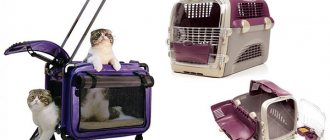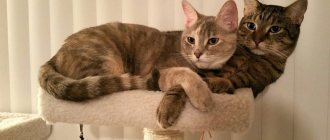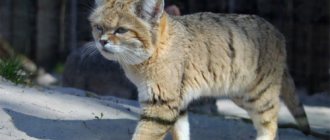An overly hyperactive kitten can be difficult to deal with, especially since the average kitten is already a ball of fluffy energy that is difficult to control and train. But it's also important to remember that it's completely normal for kittens to have a lot of energy and want to run, climb, jump, chase and play. In fact, if your kitty isn't acting this way, consider talking to your veterinarian to make sure your little fur baby is doing well.
If your kitten seems to have endless energy and you want to help him relax a little, there are ways to calm a hyperactive kitten. Most solutions involve simply providing your pet with different ways to release his energy in a positive way. This way she will be ready to rest and recharge. So, before you lose patience with your rambunctious little friend, keep reading for some tips. And if you've tried several different strategies but nothing has worked, and you think your kitten is oversensitive, consult your veterinarian for support and guidance.
Give your kitten her own sanctuary
If your kitten is acting up, let him relax in his own sanctuary. This could be a dimly lit, small room where he can relax away from other pets, distractions and people. It should also be a space where the kitten can play and release his energy without worrying about destroying anything.
© shutterstock
Like all other rooms in your home where your kitten will spend time, it should be a safe place where he will not be at risk of harm. So take the time to make sure there are no places where your kitten could accidentally get stuck (this may require blocking off part of the room so the kitten can't walk through and get hurt). It's also a good idea to remove valuables or items that could be broken by a cheerful kitten who sees almost anything as a potential toy. And make sure there are no small objects that could be dangerous to your pet or objects that could be accidentally swallowed.
With a safe space filled with cat toys, scratching posts, a cat tree, a litter box, food and water, your kitty will be ready to explore, play and practice becoming the natural predator that she is.
How to calm a small and active kitten - basic tips
Having your own pet is a dream that many want to make come true.
A pet that you can take care of will become an excellent friend and ally. When choosing a pet, many people prefer a young cat or dog. If the choice falls on a small kitten, it is desirable that it adapts well and adapts to home conditions.
But most often the kitten turns out to be too active and playful. No need to worry about this
If you pay due attention to discipline and education, an obedient and moderately calm pet will grow out of a hyperactive fidget.
Kitten activity
The behavior of a small representative of the cat family is very similar to the behavior of a small child. He also knows how to rage, play pranks, and disobey. An 8-week-old kitten may be more active than its one-year-old counterpart. But, as experts note, there are cat breeds that are hyperactive on their own and this is the norm for their character.
How to calm a kitten when he's mad
If it’s time to sleep, but you can’t calm down the kitten, here are some simple tips that will help your pet become more disciplined:
Play with him
To release some of the kitten's pent-up energy, an excellent solution would be to include him in play. A suitable option is an imitation fishing rod. By changing its direction and speed, you can create the impression of hunting prey. You can also encourage the kitten by making it run after the ball. But you shouldn’t use yarn for the game. This can lead to intestinal diseases in your pet. It is not the most suitable way to calm a kitten by including your hand and fingers in the game. This will provoke him even more.
Reward him with food
You should not leave food for your ward in the public domain. It will be better if you create conditions similar to those in the wild. For every labor there is a reward in the form of food. There are many devices on sale now that are labyrinths. To get to the food, the kitten will first have to locate it. After a good game and satisfaction of hunger, the kitten will definitely want to sleep.
Create conditions
Currently, pet stores offer a huge selection of cat houses. As you know, cats love high spaces from where they can observe. Additionally, tall spaces provide more room for exploration. If the house is equipped with shelves, a scratching post, and a hidden area, the kitten will happily mark its territory and release energy. An ordinary box can be a replacement for a purchased house, because cats like not only high, but also enclosed spaces.
Discipline him
It happens that a kitten is completely out of control and nothing helps to calm it down. In this case, you need to use suitable parenting methods. Growing kittens, like children, need a mentor and respond to strict and consistent discipline. Don't yell at him or hit him for bad behavior. He may remember this and be offended. If the kitten does not understand a calm tone, you should leave him alone in the room for a few minutes. It also helps to sober up a bully if you splash water on him or lightly flick him on the nose. You should not abuse such methods.
Calming a kitten will not be difficult. As in any business, it pays to put in a little diligence and patience.
Perhaps the kitten is lonely and is trying to attract attention. In this case, you can get him a companion
In the new company, he will feel responsible and become calmer and more flexible.
https://kotikdoma.com/uhod-za-koshkami/sredstva-uhoda-za-koshkami/kak-uspokoit-kota.htmlhttps://pets-expert.ru/kak-uspokoit-kota/https://pristor. ru/kak-uspokoit-malenkogo-i-aktivnogo-kotenka-osnovnye-sovety/
Play soothing music
Often, kittens may behave hyperactively as a result of uncertainty or fear, which may be caused by being in a new home, sharing that new home with strange new cats and people, or other stimulants in the environment.
Once you've given your kitten a safe place, try playing music at a low volume. Choose soft music, instrumental or classical music, as it will calm your kitty's nerves just as music calms yours.
Chases, ambushes and raids
Chasing and attacking is natural and common to all cats. These rough plays are instinctual. When you see your kitten menacingly attacking a soft toy, or - horror of horrors! - another kitten, then they are not trying to kill each other. Think about your pet's ancestors. These ancient cats had to be tough and fearless to survive. Even though your kitten is domesticated, these ancient instincts are still ingrained in his behavior. If a kitten walks around his mother cat, the cat will first begin to growl, and then, if this does not stop, she will spank him with her paws. Some time before her first birthday, your hyperactive kitten will become a much more mature and noble cat.
Play properly
Kittens need play time to develop. They absolutely need to be able to release their energy in a fun and positive way, and will use every play session as an opportunity to practice their hunting skills. Plus, play is a great form of exercise, and as your kitten grows and becomes more coordinated, she'll want to practice using her new abilities to climb, jump, chase, and explore. You can give your kitten time to play on his own, but spending time with your pet every day will also help him release more energy and avoid boredom and loneliness.
Having multiple play sessions with your hyperactive kitten throughout the day is a great way to bond with him while helping him release excess energy. The games you play should simulate hunting, so use toys such as sticks with feathers on the end or stuffed mice that will attract your kitten's attention and inspire his natural predatory skills. Challenge your kitten during play, but also let her win so she experiences the thrill of destroying her prey, even if it's only in her imagination.
Let your kitten roam safely in nature
If you think your kitten is hyperactive because he has a lot of energy and is tired of being indoors, letting him explore nature in your own backyard for a while may be just what he needs.
Whether you're building or buying an outdoor enclosure or purchasing a large outdoor cat enclosure, you can sit outside with your kitty while she enjoys the fresh air and sun, watches birds and insects, and finds new and exciting ways to release her energy.
© shutterstock
Just a stage
Your new kitten is exhibiting completely normal behavior. He grows quickly, eats a lot and has so much energy that he doesn't know what to do with it. When he runs around like crazy, chasing everything, it's completely normal. If you happen to see a weird or unnatural expression on his face, yes, it's crazy, but it's normal for kittens. Each cat is different, but as a rule, hyperactivity decreases markedly after sterilization. Your veterinarian may recommend that your pet be spayed before 6 months of age. You'll also likely notice in the weeks leading up to his first birthday that he'll increasingly gravitate towards you and just want to cuddle.
Try puzzle toys
Puzzle toys are a great way for kittens to get exercise, but they will also get a mental workout. With these toys, you can strategically hide treats so your pet will have to work a little to figure out how to get to them. Additionally, this type of toy can attract the attention of your hyperactive kitty, and once he smells the treats inside, he will need to use his energy to solve the mystery and get to those tasty treats.
There are many different puzzle toys to choose from, so you can find several that are sure to keep your energetic fur baby entertained while he "hunts" for his "prey." And after she's done hunting for treats, your kitten might even be ready to take a nap.
Reasons: why is the baby too active?
Non-pathological factors
Kittens are characterized by playfulness and mobility, which alternates with prolonged sleep. However, there are reasons that increase the baby’s activity. These factors include:
While the fluffy is still small, mobility should be inherent in it.
- Change of scenery. If the baby is taken away from its mother and brought to a new room, the kitten is bombarded with new smells and sounds that the little cat is not yet accustomed to. He rushes around the room, meows, experiences stress, and his nose even gets dry. Moving overstimulates the nervous system, so the kitten may run and jump a lot for several days.
- Young age. A playful kitten is the normal state of a baby. As the cat gets older, it will become reserved.
- Excessive severity of the owner. If the baby is often shouted at and punished, the small cat’s active actions are a kind of protest and response to the owner’s behavior.
- Frequently being left alone. If the baby does not have toys, in the absence of the owner, the kitten itself finds fun from furnishings, throwing off and rolling everything it finds on the floor.
Features of temperament
There are choleric cats among cats. These are the most active and mobile representatives of all types of character. Such a pet grows up too playful and active, and shows emotions violently. During outdoor games, the kitten sometimes becomes aggressive, biting and scratching. Choleric cats are emotional, often using their teeth and claws if something does not suit them. They sleep little and love to be the center of attention. Also, a change in mood quickly occurs and the pet becomes very affectionate.
Activity as a symptom of disease
Lack of microelements
The baby’s behavior can become like this due to taurine deficiency.
If a small cat is too active, this may be a manifestation of an unbalanced diet, when it does not receive all the necessary nutrients, and behavioral deviations develop. Most often, hyperactivity is provoked by a lack of thiamine (vitamin B1), which has a positive effect on the nervous system and is responsible for adequate behavior and a healthy psyche. The baby also becomes hyperactive due to a lack of taurine, which is manifested by excessive nervous excitability, aggression, inexplicable anger, superficial and anxious sleep.
Hyperthyroidism
It is characterized by excessive production of thyroid hormones - triiodothyronine and thyroxine. Most often, older cats suffer from the disease, but in rare cases the disease is congenital. Immediately after birth, the disease does not manifest itself in any way. One of the symptoms of the pathology is dwarfism. Associated symptoms:
With this disease, the furry may require food more often than expected.
- increased appetite;
- excessive activity;
- weight loss;
- irritability and aggression;
- obsessive meowing, which has not been observed before;
- increased thirst;
- frequent urination;
- dull, matted fur or hair loss;
- vomit;
- intestinal disorder.
Try cat pheromones
Pheromone products for cats, such as diffusers and sprays, contain synthetic pheromones that mimic the pheromones produced by cats. They can be used around your furry friend to reduce stress and anxiety and promote a sense of calm. So it might be worth trying these products if you have a hyperactive kitten.
Just be sure to buy high-quality products from trusted brands and check the ingredient list to avoid unwanted additives such as essential oils that may be harmful to cats.
Posted by Lisa Selvaggio Lisa Selvaggio is a writer who has volunteered in animal rescue, caring for cats of all ages and learning about their many quirks. She is certified in therapeutic pet nutrition and enjoys helping pet parents care for their fur babies.











